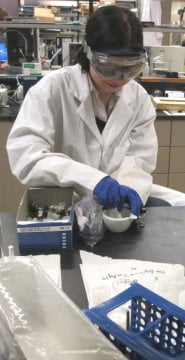
Within the past two decades, there has been an increase in research pointing to the health benefits of vitamin D, and as a result more people than ever are taking supplements. However, a study published in the June 2017 issue of JAMA says that some people are taking way more than they need too.
Researchers found that 18.2 percent of Americans ingest more than 1000 IU – which is 400 IU more than the recommended daily amount (RDA) for people under 70 – than they need. Additionally, 3.2 percent take the drug at levels higher than 4000 IU, which can lead to hypercalcemia, which is when you have too much calcium in your blood. Those who suffer from conditions such as atherosclerosis and hyperparathyroidism are at a greater risk of developing hypercalcemia, which can cause issues like poor appetite, vomiting, weakness and kidney problems.
When vitamin D is ingested at safe levels, it can have many health benefits, and most won’t experience any adverse reactions. Vitamin D is great for fighting bone diseases like osteoporosis, and some studies have found that the vitamin can also things ranging cavity prevention to flu prevention.
Vitamin D is produced when your skin is exposed to sunlight. Because sunscreen prevents the sun’s UV rays from reaching the skin, experts advise that 10–15 minutes (or less if the skin becomes slightly pink) is a safe amount of time to spend unprotected in direct mid-morning or mid-afternoon sun in summer or midday sunshine in winter.
Another way to get vitamin D is through your diet. Foods such as eggs yolks and fatty fish like tuna and salmon contain vitamin D. While an egg yolk will only give you 44 IU of vitamin D, half of a wild salmon fillet contains 815 IU. You can also get vitamin D from certain milks, orange juices and cereals that are labeled as vitamin D fortified.
Because the body can regulate the production of vitamin D, and foods don’t contain high levels of the vitamin, those who have too much vitamin D in their system likely got it through supplements.
Although there is an abundance of research devoted to the positive effects of vitamin D, the lead author of this new study, PhD student at the University of Minnesota School of Public Health, Mary Rooney, and her colleagues wanted to examine it further.
“There’s been a lot of buzz around vitamin D and its potential benefits, and we were curious if that meant people were taking more of it,” says Rooney.
According to Health, the researchers analyzed data from nearly 40,000 adults who responded to health questionnaires between 1999 and 2014. The questionnaires asked about the participant’s daily supplement intake for the past 30 days, and participants were asked to bring their pill bottles as proof that their responses were accurate. Participants that were under 20 years old, pregnant or provided inadequate information were excluded.
In the first year of the study, 1999–2000, only 0.3 percent of the participants reported taking in daily doses of more than 1,000 IU daily doses of vitamin D. But fast forward to 2013–2014, that number jumped to 18.2 percent. Less than 0.1 percent of people took doses greater than 4,000 IU a day before 2005–2006, but by the end of the study, 3.2 percent were ingesting these potentially dangerous doses.
“I thought we would see an increase, but it was to a greater extent than expected,” says Rooney.
[“source-newbeauty”]



















